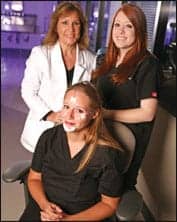The Institute of Medicine of the National Academies (IOM) has proposed recommendations on the number of duty hours medical residents can work in an effort to reduce fatigue-related medical errors and improve the learning environment. The IOM’s recommendation calls for a reduction in the maximum number of hours that residents can work without time for sleep to 16, rather than decreasing the maximum average hours of work per week from 80.
The proposed changes from the IOM is a follow-up to 2003 duty-hour regulations established by the Accreditation Council for Graduate Medical Education (ACGME) for ACGME-accredited residency programs. If put into place, the recommendations would also increase the number of days residents must have off and would restrict moonlighting during residents’ off-hours.
“Health care facilities can create safer conditions within the existing 80-hour limit by providing residents regular opportunities for sleep and limiting extended periods of work without rest. But these steps should be supplemented by additional efforts to improve patient safety and ensure residents get the full experience they need to safely and competently practice medicine at the end of their training,” says committee chair Michael M.E. Johns, chancellor, Emory University, Atlanta.
The IOM committee offered two options for dealing with extended shifts because no single model of scheduling fits all training facilities or medical specialties. The first option would allow residents to work a maximum shift of 16 continuous hours. The second option allows residents to work a 30-hour shift provided that they get an uninterrupted 5-hour break for sleep after working 16 hours, with the sleep breaks counting toward the 80-hour week limit.
The American Academy of Sleep Medicine (AASM) has commended the IOM for updating their recommendations for resident hours to reduce fatigue-related medical errors; however, the AASM is still planning to conduct a thorough review of those recommendations.
“The AASM will continue to offer evidence-based advice to the ACGME and other allied health care organizations, and will actively support any revisions to the existing duty-hour regulations that promote patient safety while maintaining the integrity of the physician-training system,” says Mary Susan Esther, MD, president of the AASM.



